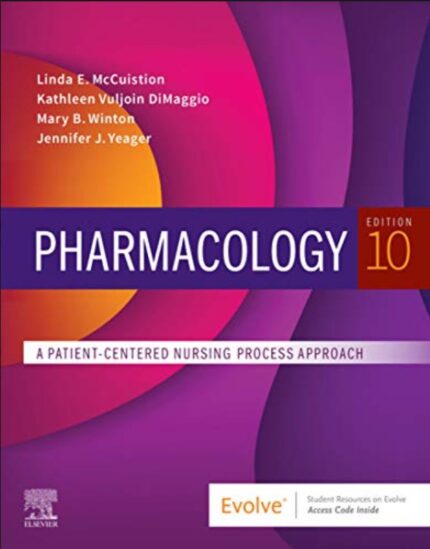Test Bank for Pediatric Primary Care 6th Edition Burns
Questions
1. A child who has attentiondeficit/hyperactivity disorder (ADHD) has difficulty ID: 13348413834
stopping activities to begin other activities at school. The primary care pediatric nurse
practitioner understands that this is due to difficulty with the selfregulation component of
A. emotional control.
B. flexibility. Correct
C. inhibition.
D. problemsolving.
2. The primary care pediatric nurse practitioner cares for a preschoolage child ID: 13348413832
who was exposed to drugs prenatally? The child bites other children and has tantrums when
asked to stop but is able to state later why this behavior is wrong. This child most likely has a
disorder of
A. executive function. Correct
B. information processing.
C. sensory processing.
D. social cognition.
3. The primary care pediatric nurse practitioner uses the Neurodevelopmental ID: 13348413842
Learning Framework to assess cognition and learning in an adolescent. When evaluating
social cognition, the nurse practitioner will ask the adolescent
A. about friends and activities at school. Correct
B. if balancing sports and homework is difficult.
C. to interpret material from a pie chart.
D. to restate the content of something just read.
4. The primary care pediatric nurse practitioner is evaluating a schoolage child ID: 13348413838
who has been diagnosed with ADHD. Which plan will the nurse practitioner recommend asking
the child’s school about to help with academic performance?
A. 504 Correct
B. FAPE
C. IDEA
D. IEP
5. The parent of a child diagnosed with ADHD tells the primary care pediatric ID: 13348413844
the nurse practitioner that the child gets overwhelmed by homework assignments, doesn’t seem to
know which ones to do first, and then doesn’t do any assignments. The nurse practitioner
tells the parent that this represents impairment in which executive function?
A. Activation Correct
B. Effort
C. Emotion
D. Focus
6. The primary care pediatric nurse practitioner is considering medication ID: 13348413826
options for a schoolage child recently diagnosed with ADHD who has a primarily hyperactive
presentation. Which medication will the nurse practitioner select initially?
A. Lowdose stimulant
B. Moderatedose stimulant Correct
C. Lowdose nonstimulant
D. Moderatedose nonstimulant
7. The parent of a 4yearold child reports that the child gets upset when the ID: 13348413824
the hall light is left on at night and won’t leave the house unless both shoes are tied equally tight. The
primary care pediatric nurse practitioner recognizes that this child likely has which type of
sensory processing disorder?
A. Dyspraxia
B. Overresponder Correct
C. Sensory seeker
D. Underresponder
8. The parent of a preschoolage child who is diagnosed with a sensory ID: 13348413828
processing disorder (SPD) asks the primary care pediatric nurse practitioner how to help the
child manage the symptoms. What will the nurse practitioner recommend?
A. Establishing a reward system for acceptable behaviors
B. Introducing the child to a variety of new experiences
C. Maintaining predictable routines as much as possible Correct D.
Providing frequent contacts, such as hugs and cuddling
9. The primary care pediatric nurse practitioner is performing an examination on ID: 13348413846
a 5yearold child who exhibits ritualistic behaviors avoids contact with other children, and has
limited speech. The parent reports having had concerns more than 2 years ago about autism, but
was told that it was too early to diagnose. What will the nurse practitioner do first?
A. Administer an MCHAT screen to screen the child for communication and
socialization delays.
B. Ask the parent to describe the child’s earlier behaviors from infancy through
preschool. Correct
C. Reassure the parent that if symptoms weren’t present earlier, the likelihood of
autism is low.
D. Refer the child to a pediatric behavioral specialist to develop a plan
of treatment and management.
10. The primary care pediatric nurse practitioner is examining a 3yearold child ID: 13348413830
who speaks loudly, in a monotone, does not make eye contact, and prefers to sit on the exam
room floor moving a toy truck back and forth in a repetitive manner. Which disorder does the
nurse practitioner suspect?
A. Attentiondeficit/hyperactivity disorder
B. Autism spectrum disorder Correct
C. Executive function disorder
D. Sensory processing disorder



